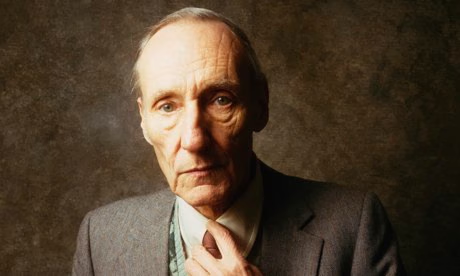In 1986, William S. Burroughs wrote a piece that turned the traditional spirit of Thanksgiving on its head. Instead of warm words of gratitude for family, harvest, and blessings, his “Thanksgiving Prayer” is a bitter, cutting reflection on America’s history and culture. It is a work of dark satire, a list of ironic thank-yous offered not to celebrate the country, but to expose its hypocrisies.
The prayer begins with thanks for the land itself, the animals once abundant, and the Indigenous peoples who were displaced or destroyed. His words quickly twist into sharp indictments: thanks for poisoned rivers, wasted herds, exterminated predators, and the myth of progress. Each line drips with sarcasm, pointing to the violence and exploitation woven into the American story.
Burroughs then turns his attention to institutions and ideals. He thanks the churches and their pious followers whose faith too often turned cruel. He thanks the enforcers of law and order whose badges became shields for brutality. He thanks the dream of America itself, vulgarized and hollowed out into consumer slogans and empty promises.
The prayer grows more personal, targeting the fears and prejudices of society. Burroughs thanks the hatred of outsiders, the slogans urging violence against those who are different, and the self-righteous moral crusades waged under banners of purity. His words are blunt, almost shocking, but that was his intent: to strip away illusions and force his audience to confront the darker truths of the nation’s past and present.
The piece later took life beyond the page. Burroughs recorded it in his rasping, unmistakable voice, his delivery lending weight to every bitter syllable. It was even adapted into a short film, where the stark reading was paired with imagery that underlined the bleak vision he presented.
More than just a poem, A Thanksgiving Prayer remains a work of cultural critique. It refuses comfort and sentimentality, instead offering a reminder that gratitude without honesty is empty. By giving thanks for the very things most would rather forget, Burroughs forces us to look straight at the shadow side of America—and decide what, if anything, we should truly be thankful for.
